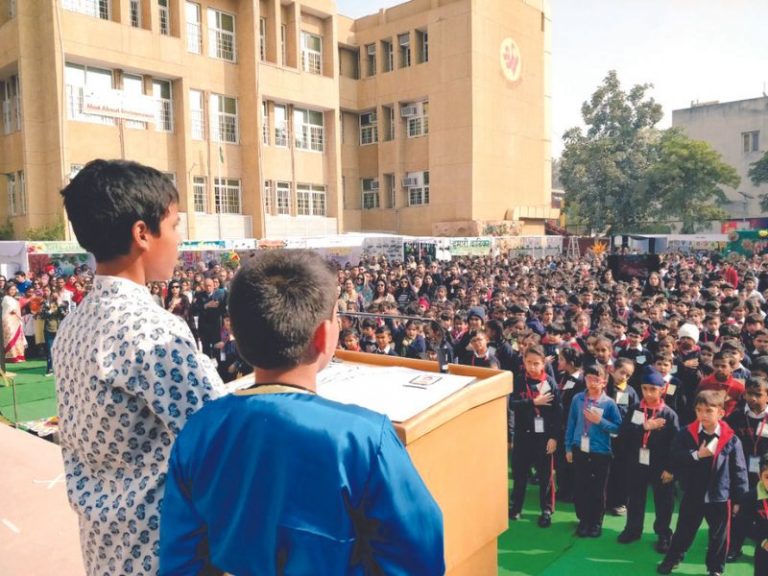Delhi: Intervention imbroglio

Autar Nehru (Delhi)
A 2017 decision of the AAP (Aam Aadmi Party) Delhi state government to conduct online admissions of pre-primary and class I children from economically weaker sections (EWS) admitted free-of-charge into private schools under s.12 (1) (c) of the RTE Act, 2009, has generated conflict between the state government’s Directorate of Education (DoE) and private schools.
The decision to mandate online registration through the state government’s education ministry was taken following reports that some private schools are making fraudulent admission entries of EWS children and claiming reimbursement for educating ‘ghost’ children. Since 2017, although pre-primary and class I admissions have been made online under government supervision, private schools continued to admit EWS children directly under s.12 (1) (c), allegedly inflating their number and claiming reimbursement from the state government.
Under s.12 (1) (c) of the historic Right of Children to Free & Compulsory Education (RTE) Act, 2009, private unaided (financially independent) schools are obliged to reserve 25 percent of capacity in class I (or nursery in composite schools with pre-primary sections) for children from EWS homes in their neighbourhood, admit and retain them free-ofcharge until completion of elementary education (class VIII). Under s.12 (2) the state/local government is obliged to reimburse private schools the cost of educating EWS children on the basis of the average per child expenditure incurred by government in its own schools, or the independent school’s prescribed tuition fee, whichever is lower.
Therefore an August 5 circular of, DoE directing private school managements to segregate online pre-primary and class I and offline (direct) admissions from 2018 onwards, which added that tuition fees of EWS children admitted directly by private school managements will not be reimbursed, has come as a shock to private schools. Especially low-fees budget private schools (BPS) which have been admitting duly certified EWS children in their neighbourhoods into classes II-VIII delhi Education News for the past five years. They have requested DoE to maintain the status quo until the academic year 2021-22 as more than 100,000 EWS children have been directly admitted under s.12 (1) (c) by independent schools since 2018.
The issue of private independent schools admitting children under s.12 (1) (c) has been complicated by antecedent Delhi School Education Rules 1973. Under these rules framed under the Delhi School Education Act, 1973, 394 private independent schools given land at concessional prices by government are obliged to reserve 20 percent of capacity and provide free-of-charge education to EWS children for the entire K-12 education span.
Since 2010 when the RTE Act, 2009 became operational, the practice of concessional land grant schools has been to admit an additional 5 percent EWS children and claim reimbursement for their education until class VIII. In 2018, the Delhi government standardised reimbursements to private schools admitting s.12 (1) (c) children at Rs.26,908 per annum for classes I-V and Rs.26,707 for class VI-VIII plus Rs.1,100 and Rs.1,400 respectively towards books, stationery and uniforms. Therefore, with private schools claiming to have admitted 100,000 EWS children since, the aggregate reimbursement sum owing to BPS in particular is huge, estimated at Rs.260 crore.
Therefore, independent school managements contend that if reimbursements of children admitted into classes II-VIII are cancelled, they would suffer grave financial damage. “The DoE’s own modules allowed offline admissions in classes II-VIII and in a reply obtained by us under a RTI (Right to Information) Act query filed by us, DoE confirmed that schools can admit students on their own for vacancies in classes II-VIII,” says Dr. Chandrakant Singh, general secretary of Private Land Schools Trust (PLST).
This imbroglio provides a perfect example of how government intervention, i.e, “backdoor partial nationalisation” of private schools under s.12 (1) (c) has resulted in continuous litigation and waste of time for private school managements.

















Add comment